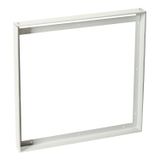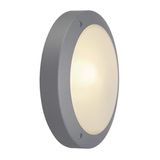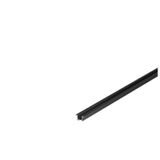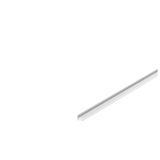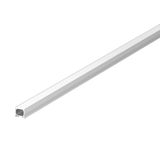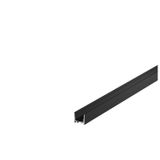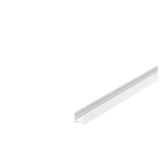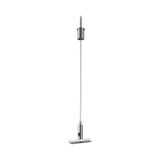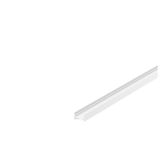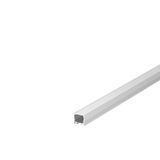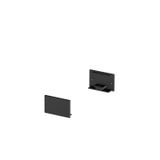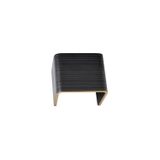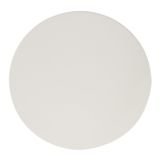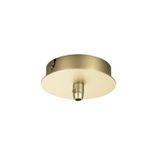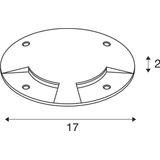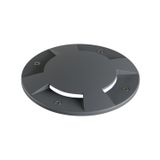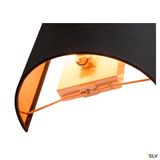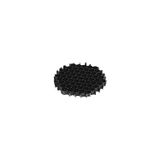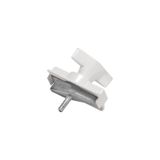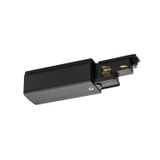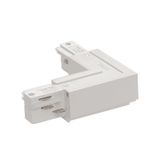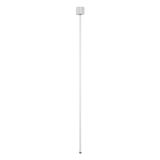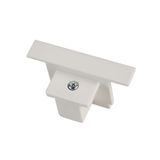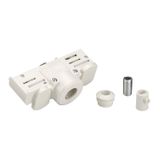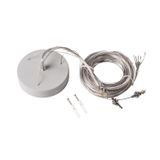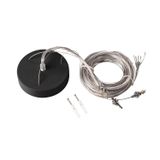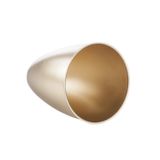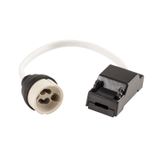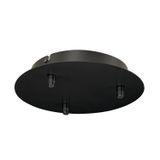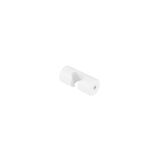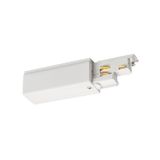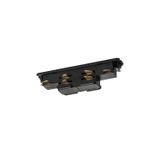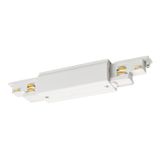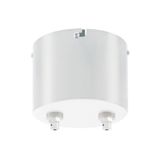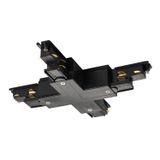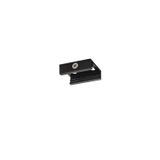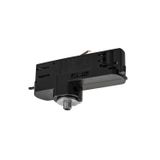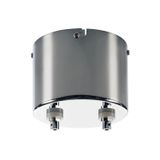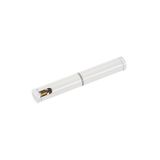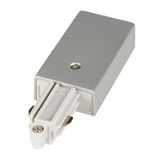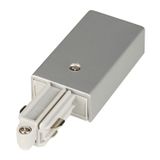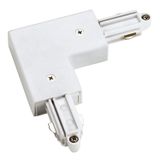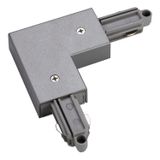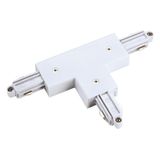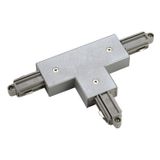SLV Lighting accessories
Glas SLV Bulan
(SHORT NAME)
slv lighting accessories Application scope and context
Ceilings, shopfits, galleries, and service voids install faster when the small parts are dimensional, heat-rated, and predictable. SLV’s accessory range is built around mainstream IEC footprints so holders, connectors, and brackets line up with European 230 V practice and SELV loops. Materials are halogen-free PC/PBT or ceramic where heat is high; metals are zinc-plated or stainless with published torque and pull figures. Typical ambience −25…+50 °C; ingress from IP20 in-ceiling to IP65 on sealed kits. Conductor windows and strip lengths are printed on the parts so crews don’t guess on lifts.
slv mounting brackets Mechanical options and load classes
Wire-rope kits with keyed grippers, rigid rod M6/M8 sets, and cantilever arms cover most luminaires and tracks. Safe working loads land roughly 20–120 kg per point with ≥5:1 safety factors; vibration data follows IEC 60068. Slotted plates give ±3 mm play for straight rows. Coastal or washdown areas want stainless hardware and closed-cell gaskets; powder-coat systems meet ISO 9227 salt-spray classes. Keep ≥10–15 mm air around convection-cooled drivers—thermal headroom is cheaper than returns.
slv lighting connectors Interfaces, ratings, and sealing
Push-in and screw-clamp blocks comply with EN 61984 and present IP20 finger-safe geometry with test probe access. Ratings commonly 250/450 V, 6–16 A by frame; acceptance 0.5…2.5 mm² solid/stranded with ferrule guidance. IDC jumpers speed retail rails; polarity keys reduce field errors. For damp zones, gasketed feed-throughs lift assemblies to IP44/IP65 without losing serviceability. Marked strip lengths and torque windows stop over-compression that leads to creep.
Other lighting accessories:
spectrum lighting accessories
siteco lighting accessories
siemens lighting accessories
schneider electric lighting accessories
phoenix contact lighting accessories
Technical specifications and standards
Lampholder families reference IEC 60238 (E-cap), IEC 60400 (bi-pin) with glow-wire 650/750/850/960 °C options per IEC 60695-2-11. Connectors to EN 61984; assembled boxes to EN 60670-1/-22; empty housings EN 62208. EMC immunity EN 61547; emissions EN 55015. Typical dielectric 2 kV; surge paths 2–6 kV when paired with the right driver. IP per EN 60529; IK up to IK08 on exposed trims. For emergency circuits, choose terminals rated for 105 °C sheath and document loop polarity at the drawing.
Applications and integration with SLV systems
Refits: shallow ceilings use compact carriers with low-profile grips; keep bend radius for loop-through tails. Hospitality: discrete joiners and blind end-caps maintain sightlines on coves. Retail: quick-change connectors let merch teams re-aim without irons; daisy-chain whips are pre-terminated to cut ceiling time. Museums: ceramic slv lamp holders near hot optics, plus high-CRI drivers with low ripple for cameras. Plant corridors: sealed penetrations with stainless plates hold IP where washdown is routine. In mixed boards, segregate SELV and mains—EMC is won at the entry plate.
Selection criteria for B2B buyers
- Duty and environment first: indoor dry vs damp/washdown; pick IP/IK, material, and seal compound.
- Electrical window: voltage class, amperage, conductor range, and ferrule policy; publish torque right on the layout.
- Thermal: T-class of holders vs luminaire Ta; avoid plastic skirts near enclosed lamps.
- Mechanics: SWL per point, bracket geometry, and wall build-up; verify anchor type and edge distance.
- Serviceability: captive screws, visual-check lids, and replaceable gaskets; standardise spares across floors.
- Documentation: include EN/IEC references, strip lengths, and tightening tools—auditors sign off faster.
Parts planning and logistics
Keep a common fastener set across brackets, glands, and profiles to reduce van stock. Order reducers and blanking plugs with the first drop; missing reducers cause late drilling. Where job packs reference slv installation accessories, group EANs by room/zone so kits arrive per area, not by SKU—site teams finish in one pass. For legacy systems, map connector families before night works; adapters are cheaper than re-pulling cable.
Typical spare-line items and lifecycle
Ceiling teams burn time on small misses, not luminaires. Maintain a shelf with seals, joiners, clamps, and a labelled kit of slv lighting components matched to each project standard. Where drawings use catch-all wording like slv spare parts for lights, translate it into explicit caps, clamps, seals, and terminal ranges in the quote to prevent substitutions during procurement.
Bankoflamps advantages
We align accessories to your room data sheets and single-lines—holders, connectors, brackets, glands—then present live EU stock by warehouse before access nights are booked. Quotes usually land in about an hour with EAN/MPN, torque tables, conductor windows, IP/IK, and SWL documented, so nothing drifts mid-phase. Your portal shows lead times, shipment status, and downloadable price lists with validity dates; approved clients can use post-payment up to 30 days. We consolidate by room/zone to cut freight and sorting, and your account manager cross-checks bracket spacing, entry hardware, bend radii, EMC policy, and emergency loop polarity against drawings—so cartons arrive lift-ready and crews close the ceiling once.
